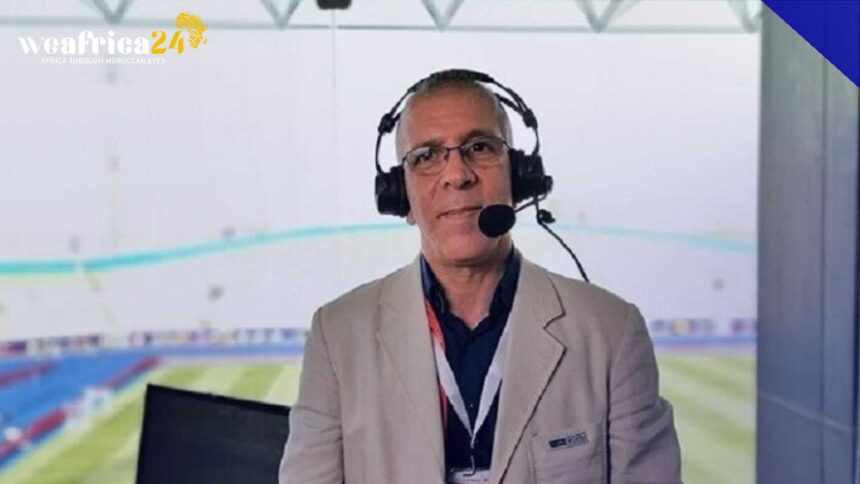In a renewed display of hatred, jealousy, and bias against Morocco, Derraji once again vents his hatred through a media appearance. His recent media outing is not coincidental, he likely sought recognition for journalistic excellence, perhaps eyeing a prize bestowed by President Tebboune. However, such a competition deserves nothing but dismissal.
With weeks remaining until the upcoming Africa Cup of Nations scheduled in Ivory Coast next January, Derradji, almost forgotten until now, opportunistically resurfaces to target his favorite subject: Morocco.
While no one denies him the right to love and defend his country, patriotism is a virtue that every human should uphold. However, Derradji is not a patriot; he is a nationalist aligned with the current regime. Judging by his writings, he seems to dislike Morocco more than he loves his own country. Such animosity requires attention due to its impact on his attitudes and behavior.
His recent social media posts are revealing and align with a strategy perfectly matching that of his sponsors. It follows the protocol imposed on official Algerian media, portraying Algeria, led by its army, as a powerful and influential state but a victim of multiple conspiracies. His latest attack, a rehearsed one, concerns the designation of Morocco for hosting the 2025 Africa Cup of Nations.
In a new message on the X platform (formerly Twitter), he expressed satisfaction with his country’s late withdrawal from the hosting bid, adding, “Everyone knew that Morocco would get the 2025 AFCON, for reasons and considerations we all know.” Then, without any caution, he accused Gianni Infantino, FIFA President, and Patrice Motsepe, CAF President, of “sharing the cake in Marrakech.”
The fact that Morocco has built international-standard stadiums over the past decade, used by many African countries for official matches, seems to escape his notice. The hosting of FIFA Club World Cups in Rabat, Tanger, Agadir, or Marrakech and the considerable infrastructure of the country are not arguments for the generals’ spokesperson.
In Algiers, where even running water is regularly cut off for a few hours daily, stadiums, hotels, and remarkable facilities don’t seem to matter. The ability to host global events, such as COP 22, World Bank, IMF annual meetings, and many other gatherings, loses significance when bad faith, jealousy, and hatred cloud judgment.
In reality, Derradji lacks a reference for success. Despite Algeria’s ample financial resources, thanks to a rich hydrocarbon-laden subsoil, its international success relies mostly on backstage dealings. He fails to comprehend how a country with human capital as its primary wealth can convince international bodies to entrust it with such a significant event.
The Algerian regime had indeed spared no effort to reinforce its narrative of being an influential country. Stadia were hastily built, using enormous resources, to secure votes from decision-makers. This rush resulted in cost overruns and, more importantly, dissatisfaction with the delivered outcomes. None of the completed stadiums has a playable field, causing regular frustration for players and the national team’s coach. Yet, this situation does not seem to bother Mr. Derradji!
This tendency to resort to catch-up strategies is not new for the regime. In 1970, after the Mexico World Cup, the qualifiers for the 1972 Africa Cup of Nations pitted Morocco against Algeria. The live broadcasts of the two matches, via the Maghreb Vision (the Maghreb counterpart to Eurovision), revealed that only the Mohammed V Stadium had a grass pitch. Following this, Boumediene ordered the construction of the July 5 Stadium and mandated the installation of artificial turf in all stadiums.







